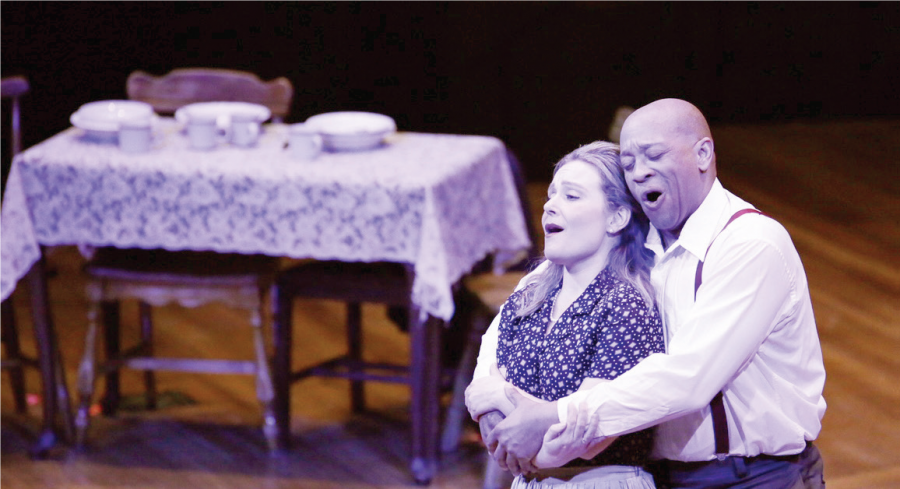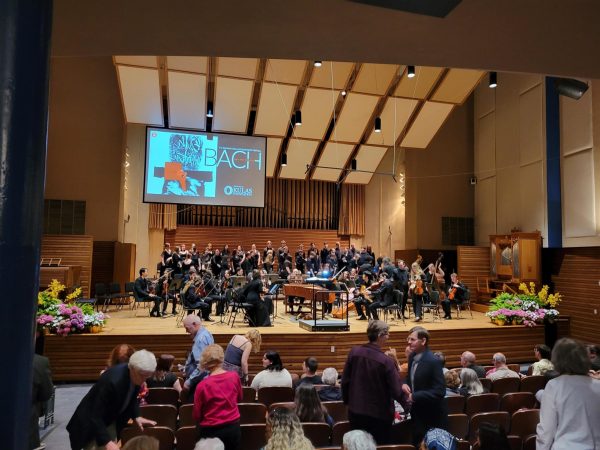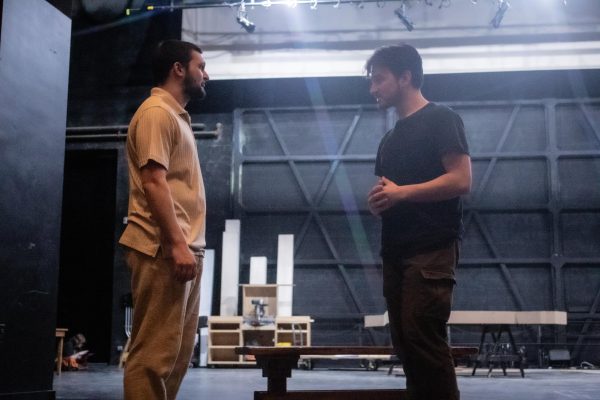New Opera Works festival brings opera to diverse audiences
New Opera Works (NOW) is an annual festival to create, develop, and perform new opera and features new works at various stages: readings, workshops, and staged productions. At this year’s festival from Jan. 26-28, the operas produced included The House of Bernarda Alba, Verlorene Heimat (Lost Homeland), and a variety of workshops with piano accompaniment.
Scott Skiba, Artistic Director for Cleveland Opera Theatre, said one of the goals for the NOW Festival is to show people that opera isn’t an antique art form.
“We…have to be giving a voice to how opera can develop, how is it still relevant, what themes is it talking about, what is it addressing,” said Skiba. “Some people don’t know opera and they’ll say ‘I don’t like opera.’ Okay, let’s create a scenario where they might come check it out. ‘Hey, Friday’s free beer Friday. Come check it out.’ I think it’s all about how it’s presented.”
Jake Dufresne, sophomore, performed in Verlorene Heimat this year and in We’ve Got Our Eye On You the year before. He also says that the presentation of opera can hinder attendance.
“I think the way we need to present opera to an American audience,” he said, “is to let them sit back and we wouldn’t have to tell them anything. We don’t have to give them a three-page synopsis to read beforehand. That’s not going to get people engaged. We have to do more work ourselves to get people into opera.”
Despite this stigma surrounding opera, the NOW Festival has had audiences of all age ranges and musical preferences.
“Our audiences are diverse,” Skiba said, “You got people that are tux and gown. You got people that are jeans and t-shirt. Last year we had over 1,800 students come see a show for free. It’s a mix of families, young professionals, intergenerational people. We got people coming out to see something new. It also tends to bring out people who otherwise wouldn’t check out opera, but they like new stuff.”
According to Dufresne, new opera is not just a great experience for the audience, but for the performer as well.
“Imagine you lived in the 1780s,” said Dufresne, “and you worked with Mozart, and you added your input ‘I don’t really like this, can we change this note?’ People don’t realize taking advantage of moments like that. It’s so hard to find moments where you can work with new composers on such an intimate level where you can talk with them. Who knows, maybe a hundred years down the line, [Verlorene Heimat] will be in our history and literature books. I find it quite rewarding to work on opera that is just premiering or has never been seen by the public. I have my footprint in that step of history.”
Skiba says that he believes everybody likes opera, but perhaps not everyone has found the opera they like.
“A lot of people think they don’t like opera,” said Skiba. “I’d say majority of those people fall into a couple categories: they’ve never seen an opera and they let pop culture tell them what it is, or they’ve seen an opera and it’s either not a good opera or it’s not a good production … All operas are not for everyone. Advise me on what you like and I’ll give you some clues. The next question is, ‘Have you ever seen a movie you don’t like? Does that mean you don’t like movies?’ I’m willing to bet that they didn’t enjoy an opera because it didn’t cater to what they like. It’s like someone saying they like action-adventure but went to go see a romantic-comedy. No wonder they didn’t like it. Even if it was their taste, and they didn’t like it still, I bet it wasn’t a good production. Give it a chance. Go find that opera again. Go watch a couple things. This New Works Festival is a chance for people to give it a try.”
Dufresne added not to close any doors, because you might find something you like.
He said, “Don’t go off of stereotypes, eliminate that prejudice…never generalize. Generalization leads to negatively thinking about something. Never have a negative mindset going into something new.”
The Exponent is looking for financial contributions to support our staff and our newsroom in producing high-quality, well-reported and accurate journalism. Thank you for taking the time to consider supporting our student journalists.













































